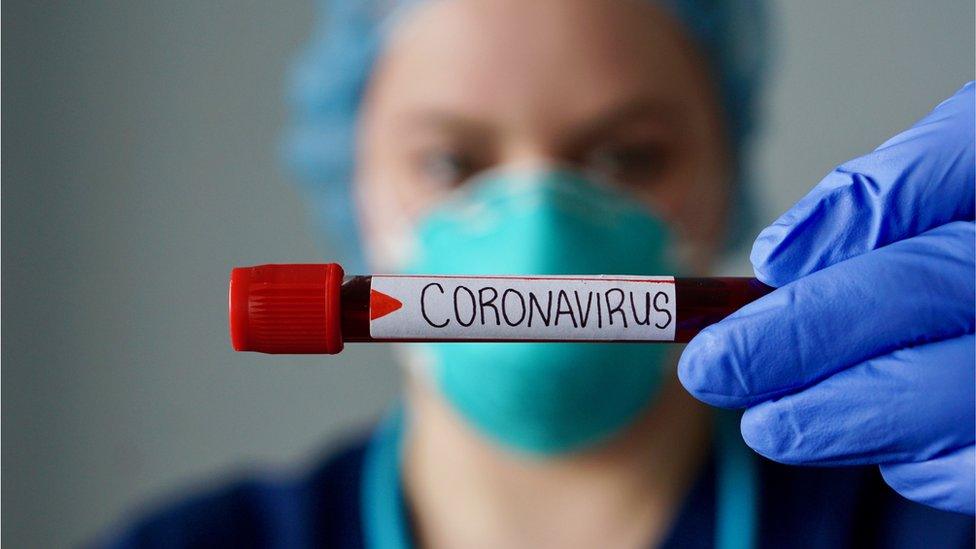Coronavirus: Care home inspectors did not visit residents for weeks
- Published
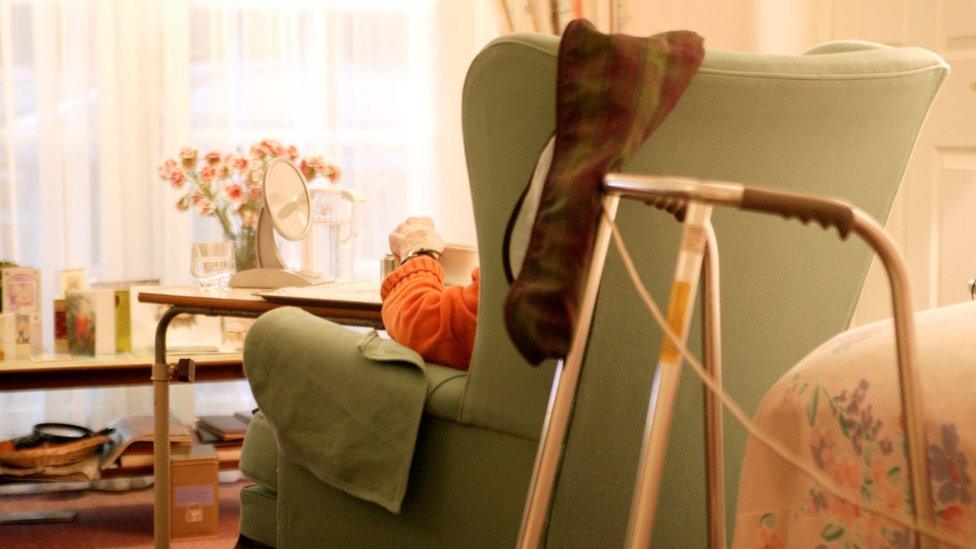
The Regulation and Quality Improvement Authority (RQIA) is NI's care home watchdog
NI's health watchdog did not carry out care home inspections when residents were present for more than 40 days, BBC News NI has learned.
On 20 March, the Department of Health (DH) announced it was "reducing" checks to help stop the spread of coronavirus.
In the six weeks to 29 April, the Regulation and Quality Improvement Authority (RQIA) had no interaction with residents during inspections.
The RQIA said it followed DH guidance to focus on supporting care homes.
During the six weeks, staff from the RQIA only inspected buildings without residents present or carried out reviews of care remotely. This was done by arranging video calls with managers at care homes and reviewing paperwork.
Inspections
The RQIA is responsible for monitoring the quality of health and social care services in Northern Ireland, including carrying out care home inspections.
Its board is responsible for holding the regulator's management to account.
All nine members of RQIA's board stood down in June claiming they were not consulted on key decisions, including the move to reduce the frequency of inspections and the decision to make RQIA inspectors work in other roles in care homes.
Health Minister Robin Swann and Chief Medical Officer Dr Michael McBride have stated that the intention was never to stop inspections completely.
But BBC News NI has learned that between 20 March and 29 April 2020 officials conducted 11 inspections, which did not involve contact with residents.
These consisted of three on-site inspections that were examining care home buildings and eight that were carried out remotely.
Official minutes of a meeting between health authorities, obtained by BBC News NI, highlight concerns that during the period of reduced inspections, RQIA was receiving "much less intelligence than is needed to make judgments about any regulatory response".
The meeting took place on 29 April and was attended by representatives of the five health trusts, the Health and Social Care Board and officials from RQIA.
The next day, on 30 April, RQIA carried out its first two on-site inspections with care home patients since 20 March.
They were in response to specific concerns the regulator had received and inspectors spoke to those living in the homes.
From that point, RQIA then increased its on-site activity and between 1 May to 23 June it carried out a further 33 on-site inspections.
On 23 June, the Department of Health announced that RQIA would be resuming its normal inspection activity.
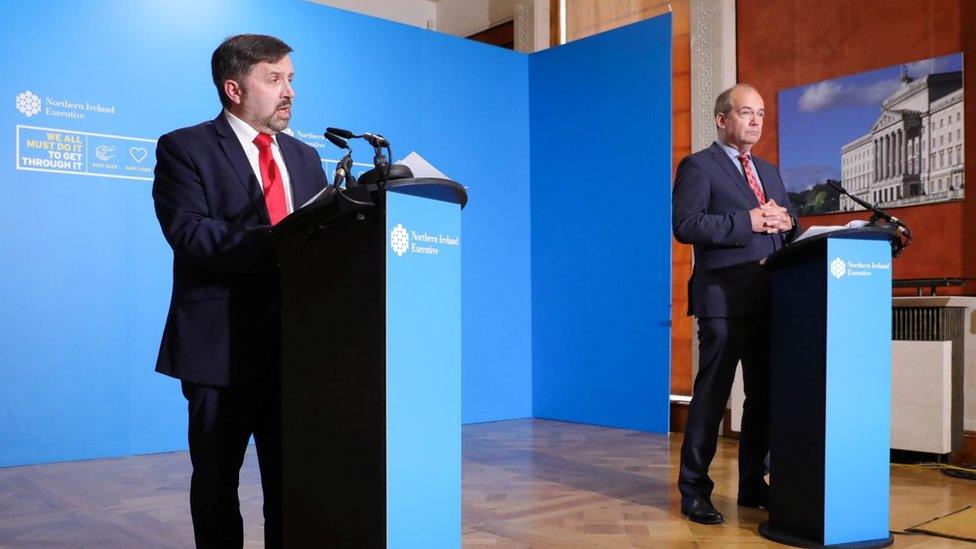
Robin Swann and Dr Michael McBride said it was never the intention to stop inspections completely
A spokesperson for the RQIA said: "We have a responsibility to those in receipt of care and to those working in care services.
"Throughout this time we balanced the risk of inspection against the potential for RQIA to introduce or spread infection in these settings. As the pandemic progressed, we enhanced our support role with increased inspection activity in response to identified risks."
The Department of Health said all decisions were made with "the safety of patients at their heart" and that inspections continued on a risk-assessed basis in the earlier stages of the pandemic.
"The main drivers for reducing the frequency of statutory inspections activity as part of the HSC initial response to the pandemic was to free up limited resources to deal with anticipated pressures within care homes and to allow RQIA inspectors to assist colleagues within this sector to deal with the continued pressures being faced by staff."
'Concerns'
BBC News NI has also learned that between March and June, RQIA received more than 2,000 contacts from care providers to raise "concerns and issues" with its service support team (SST).
This included concerns about personal protective equipment (PPE), visiting, Covid-19 testing arrangements and staffing.
RQIA said its inspectors also proactively contacted services to provide guidance and support on about 1,800 occasions.
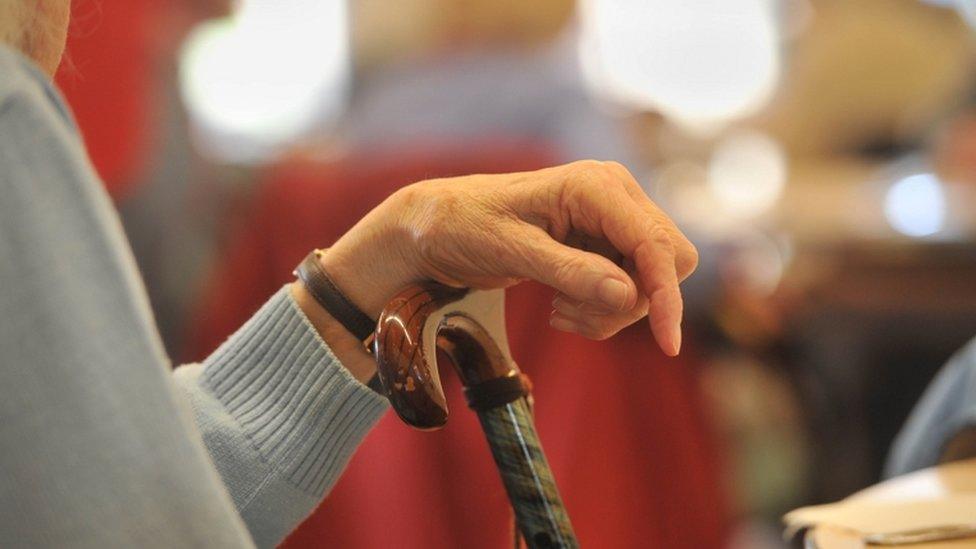
Care home residents account for more than half of NI's coronavirus-related deaths
A spokesperson for the Department of Health said: "This information came about as a direct result of freeing up RQIA inspection resources to establish the SST.
"This daily information, about both staff and residents' well-being, had not previously been available to the RQIA or the HSC trusts.
"RQIA had more intelligence about what was happening in nursing and residential care homes between inspections than previously."
A spokesperson for RQIA said: "In any case, where we had concerns about the welfare of people in receipt of care or there was evidence of increased risk, we addressed these in line with our regulatory powers, including inspection and where necessary enforcement action."
Last week Dr Tony Stevens was appointed as the new interim chief executive of the RQIA.
- Published6 July 2020
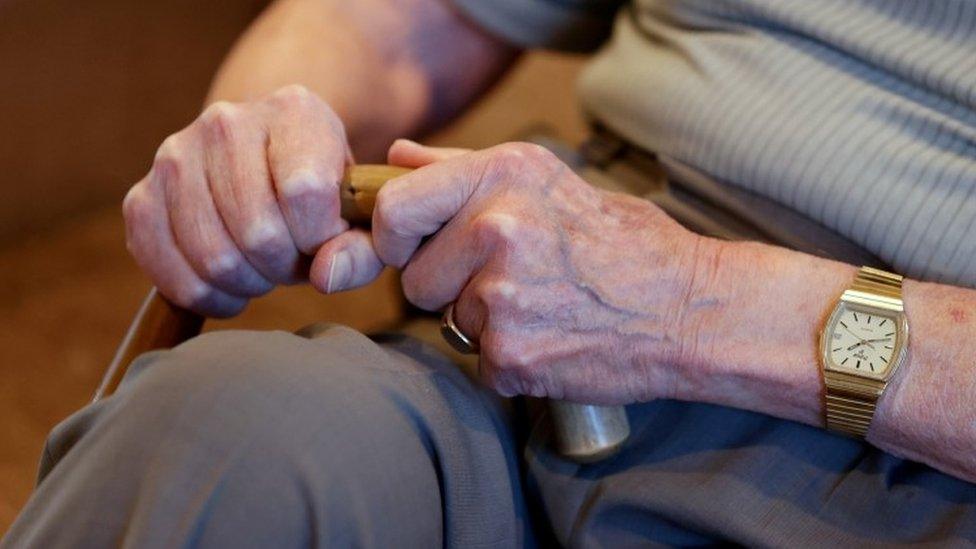
- Published29 May 2020
